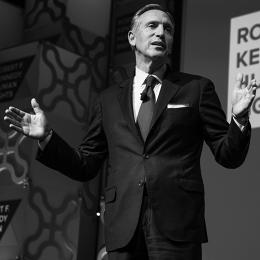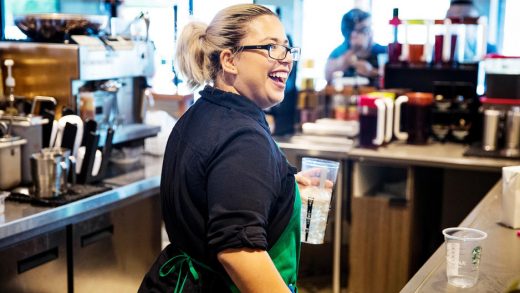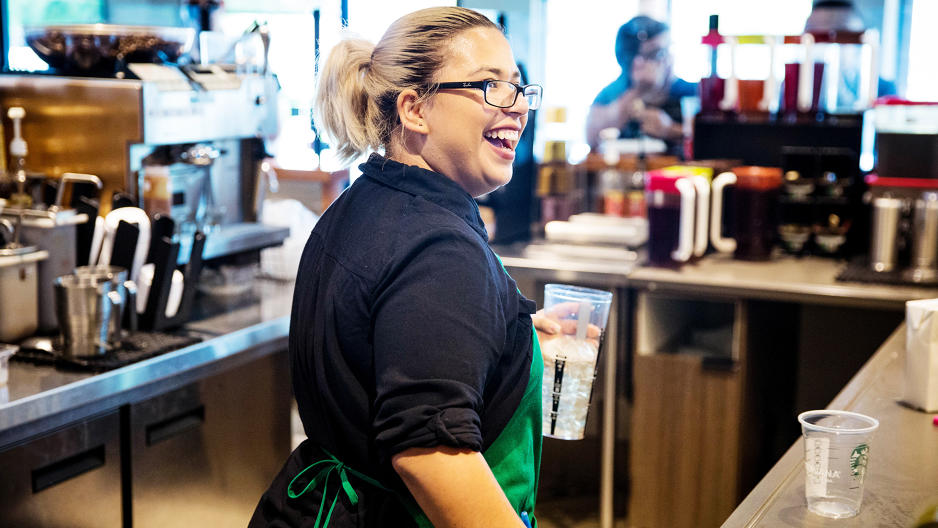Starbucks’s Past Initiatives Provide Clues Into How It Might Hire 10,000 Refugees
While other CEOs say they’ll support their immigrant workers in the face of President Trump’s sweeping ban on people from certain countries—without going even so far as to call out the executive order itself—other executives are trying to do a bit more. Take Starbucks CEO Howard Schultz as an example of the latter. Earlier this week he announced a program to counteract the newly inaugurated president’s “Muslim ban”: Starbucks plans to hire 10,000 refugees over the next five years.

In a message to employees Schultz wrote, “We will neither stand by, nor stand silent, as the uncertainty around the new administration’s actions grows with each passing day … There are 65 million citizens of the world recognized as refugees by the United Nations and we are developing plans to hire 10,000 of them over five years.”
I reached out to Starbucks to learn more about the company’s plans to roll out this program, and it declined to comment further on its refugee initiative. But we can look at a few past programs that may illuminate the way Schultz could go about finding and employing these people
Veterans And Youth Programs
One of Starbucks’s most well-touted programs is its initiative to hire 10,000 veterans. Similar to how Schultz is targeting refugees for jobs, the CEO announced in 2013 that he planned to hire the same number of veterans over a five-year period. So far the company says it has hired more than 8,800 veterans with one year to go to reach its goal of 10,000.
The first thing the company did was find areas where it could open new coffee shops, especially areas where military families were clustered. Since 2013, the company has opened 32 new military-focused shops, which it calls “Military Family Stores.” Starbucks also hired military recruiters to make connections with military families who would be interested in working with the coffee company.
Another similar program is called “Opportunity Youth,” and focuses on people ages 16-24 who aren’t working or in school. Like the veterans program, Schultz pledged in 2015 to hire 10,000 of those youth by 2018. Then he went further and announced a coalition with 50 other companies to hire 100,000 young people. Now the company says it has opened four stores in low-to-medium income communities that also have training spaces inside as a way to create and foster jobs, and the 100,000 milestone has already been passed.
A Proven Strategy
Using both programs as a template, you can get a glimpse into how Schultz might strategize the refugee hiring initiative. In his statement, he said the company would look toward hiring them in the “75 countries around the world where Starbucks does business.” In short, this will likely be a global initiative. The company may seek out areas known to welcome refugees and begin there. It’s also possible that, like the military program, Starbucks would begin sending out recruiters to organizations representing refugees.
Of course, veterans and American youth are different targets than global refugees. For one, those programs focused on American employees and this new refugee-focused endeavor has a much more global scale. Moreover, it’s much less politically charged to hire thousands of American military veterans or at-risk American youth than it is to hire foreigners seeking asylum. This a much more political stance, and the road for Starbucks may be rockier.
And indeed the pushback has already begun. People have begun calling for a boycott of Starbucks because of the refugee plan. Some have even said that the company should be focusing on hiring people like veterans, perhaps not realizing the company already does.
The pushback caused a group of military people, part of Armed Forces Network, to write an open letter defending Schultz. They write:
We respect honest debate and the freedom of expression. Many of us served to protect that very right. Some of our brothers and sisters died protecting it. But to those who would suggest Starbucks is not committed to hiring veterans, we are here to say: Check your facts, Starbucks is already there.
Schultz is a savvy businessman, someone who has shown the ability to execute large-scale programs. We’ll be sure to keep track of Starbucks and try and learn more about this initiative as time goes on; it’s likely Schultz has yet to even strategize a formal roadmap. But, with two other similar programs in his back pocket, we at least get the sense that this isn’t brand new terrain.
Fast Company , Read Full Story
(17)



